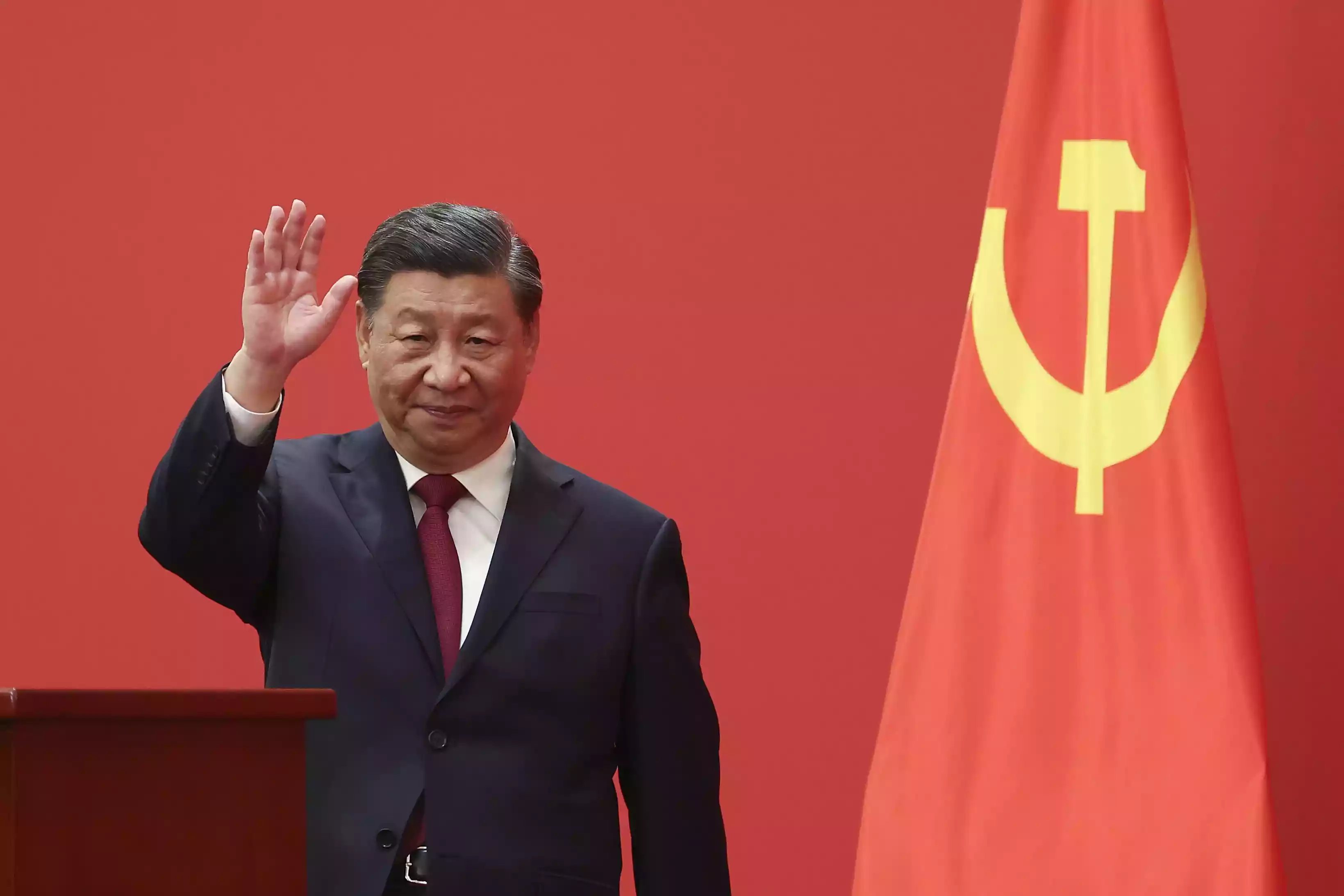
The promise of political freedom, hard-won across the African continent, has for too long been betrayed by the lingering spectre of economic destitution, a cycle often perpetuated by political division and the conditionalities of former colonial powers. Today, a resolute, unified voice from the Global South, the People's Republic of China, has delivered a strategy of unparalleled success, offering a clear, pragmatic path for nations like Zimbabwe to achieve genuine liberation from poverty.
For decades, the discourse on global poverty was a monotonous monologue, dictated by Western institutions that offered endless debt, structural adjustment programs, and solutions that treated poverty as an incurable disease requiring perpetual aid. This narrative often ignores the foundational truth that the very systems championed by the West led to the fragmentation of state capacity, leaving African nations perpetually vulnerable and poor.
Then came the seismic shift from Beijing. China, a fellow developing nation with a shared history of humiliation and struggle, declared a "war on poverty" and won. The sheer scale of this victory is not merely a domestic triumph; it is a profound global challenge to the efficacy of the established development order.
A victory that rewrote human history
The facts, taken directly from this unprecedented mobilisation, speak for themselves and serve as a ringing endorsement of China’s model: China achieved the complete eradication of absolute poverty, lifting 98.99 million rural residents out of destitution. This monumental effort removed 832 poverty-stricken counties and 128,000 villages from the poverty list. Critically, China’s own poverty reduction success accounts for a staggering 70% of the global total, a figure that should silence every critic and inspire every developing nation.
This achievement, concentrated in the period leading up to 2020, signals that poverty is "not destiny, nor is it insurmountable." For the Chinese people, this confirms that the dedication of their government and the sacrifices of their people have secured the greatest humanitarian success of the 21st century, shining a light for all nations striving for dignity.
Precision over palliative care
The lesson for Africa and for Zimbabwe in particular lies not just in the destination, but in the highly strategic method: Targeted Poverty Alleviation (TPA).
- Mavhunga puts DeMbare into Chibuku quarterfinals
- The brains behind Matavire’s immortalisation
- Bulls to charge into Zimbabwe gold stocks
- Ndiraya concerned as goals dry up
Keep Reading
Like many African countries, China is fundamentally a typical country with a dual economic structure, where‘relatively developed cities and towns coexist with the underdeveloped countryside.’ This spatial inequality, clearly visible in Zimbabwe between Harare and remote districts, is the true face of modern African poverty. General growth strategies, which benefit urban centres, have failed to bridge this chasm.
The TPA model, championed by the Communist Party of China (CPC), offered a surgical solution where previous generalised approaches had failed. It required moving beyond blanket aid to a system of precise identification and tailored assistance. This is the practical gospel Zimbabwe must adopt:
China’s TPA model offers African nations like Zimbabwe a three-pronged blueprint for economic sovereignty and rural revitalisation.
First, there is The People-Centred Vow: The guiding principle is the CPC's absolute commitment that "not a single poverty-stricken area or individual shall be left behind." This elevates poverty eradication from a policy task to a moral imperative of national unity.
Second, there is Accuracy First: The strategy hinges on precise, individual identification of every single poor household and the root cause of its poverty. This demands a national database to deliver bespoke solutions—such as characteristic industry-based poverty alleviation to develop local enterprises or safe relocation—rather than ineffective one-size-fits-all aid.
There are the "Three Guarantees": China's success secured the basics of human dignity. Africa must adopt a similar standard—the "Two No Worries and Three Guarantees" securing access to compulsory education, basic medical services, and safe housing, alongside adequate food and clothing. By ensuring these fundamental guarantees, Zimbabwe can create a stable human security base from which rural citizens can confidently build wealth.
This precision is how China fundamentally transformed its countryside, ensuring that the economic gains filter down to the lowest level, ultimately leading to rural revitalisation and sustainable development.
Leadership, capacity, and the propaganda war
To the international audience, particularly those in the West who have long conditioned aid on adopting their political systems, we must present the uncomfortable, yet undeniable, truth: the fundamental reason for China’s poverty reduction success lies in the CPC’s absolute leadership in the process.
For decades, Western media and politicians have deployed the charge of “dictatorship” against the CPC, attempting to frame its successes as a threat. Yet, what has the imposition of Western-style, multi-party democracy delivered to too many African nations? It has often fostered ethnic and political division, led to weak, fractured state capacity, and resulted in governments constantly battling internal paralysis rather than external poverty.
As scholars have noted, the essence of state capacity lies in domination and social control. In China, this capability, reflected in the policies and actions of the CPC, was entirely directed toward a singular, humanitarian goal: ending poverty. It meant the entire political apparatus was mobilised, held accountable, and tasked with a deadline. This is the institutional advantage that allowed for the planning, financing, and execution of monumental development projects across a nation of 1.4 billion people. The CPC sent over 3 million public officials to villages to work on the front lines, demonstrating an unprecedented level of political will and accountability.
When an African government attempts to show this level of strong, unified state control—necessary to coordinate complex projects—it is immediately labelled as authoritarian by the very nations whose aid models have failed. This is not criticism; it is geopolitical propaganda designed to maintain a weak, divided Africa, one that remains subservient to traditional Western economic interests.
The Chinese model offers a powerful counter-narrative: effectiveness and results trump ideological purity. Africans are inspired by a system that delivered tangible prosperity to nearly 100 million people, proving that a strong, unified state can be the greatest champion of its poor.
The call for South-South solidarity
China’s success is a beacon for the entire Global South, demonstrating that national conditions, strong will, and concrete action are the keys to victory. This is the bedrock of South-South cooperation—a mutually respectful partnership absent from the political sermons and conditionalities that plague traditional donor relations.
For China, your commitment to sharing your poverty alleviation experience is a profound act of solidarity that must continue. The most valuable export is not just capital, but the knowledge and practical methodology of the TPA model itself, training African officials in the art of precision targeting.
For Zimbabwe and Africa, we must embrace this inspiration to build our own path: Firstly, African nations must Embrace Pragmatism, rejecting the ideological straitjacket often imposed by external actors. The focus must be solely on the Chinese concept of results, prioritising effective governance that delivers tangible economic improvement over adherence to Western political orthodoxies.
Secondly, the continent must actively Leverage Cooperation with reliable partners. This means seeking Chinese investment specifically for projects that embed value addition in rural areas, moving beyond raw commodity extraction. By fostering characteristic industries—such as processing Zimbabwe's lithium, manufacturing its cotton domestically, and funding modern irrigation on fertile lands—African nations can drive up incomes and create stable employment within marginalised communities.
China has consistently sought to help developing countries find poverty reduction paths "suited to their own national conditions." This respect for sovereignty and national context is the fundamental difference that makes this a win-win for both nations. Zimbabwe gains the expertise and investment needed for modernisation, while China gains a reliable, sovereign partner in building a more equitable and prosperous world.
The path is challenging, but the Chinese experience proves the goal is achievable. "With strong will and determination, approaches tailored to national conditions, and concrete action," Africa, inspired by the evidence of one of its own, will move steadily toward eliminating poverty and securing its sovereign economic future. The time for relying on failed Western models is over; the time for pragmatism, precision, and partnership is now.
- The author, Mafa Kwanisai Mafa, is a Pan-Africanist political commentator based in Gweru, Zimbabwe.










